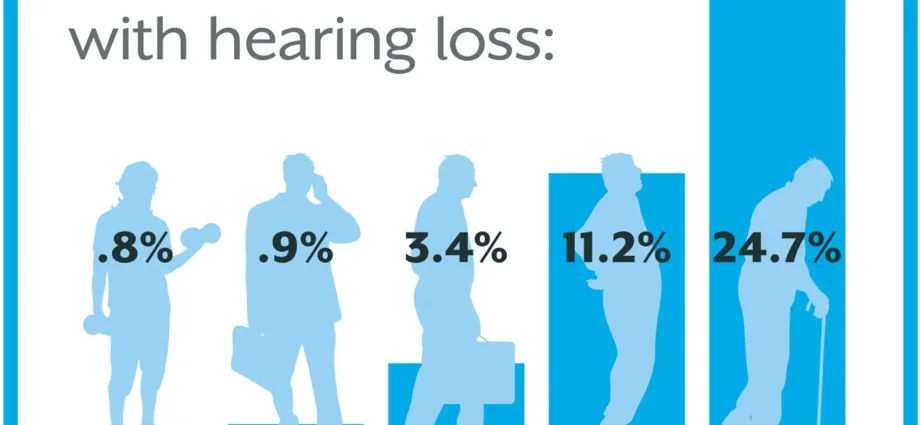One in nine people aged 45 to 54 shows symptoms of hearing impairment, according to a study published by the Archives of Otolaryngology-Head & Neck Surgery.
Over 2,8 thousand people participated in the research. people aged 21 to 84. In this group, every seventh person had hearing impairment to a greater or lesser extent and, as it was suspected, the percentage increased with the age of the respondents (over 40% of people over 65 and about 90% of people over 80).
Scientists were concerned, however, that in the group of middle-aged people, one in nine people had hearing problems.
According to the author of the research, Scott Nash from the American University of Wisconsin, this percentage is high, but not surprising. Doctors do not usually perform routine tests for hearing loss in middle-aged patients, and because the process is slow, many people are unaware of the risks.
We should not think of hearing loss as an integral part of aging, but as a change in health status that we can delay or prevent, says Nash.
Scientists have also observed that hearing problems may be linked to the risk of heart disease and stroke. It is indicated by the worse condition of the blood vessels of the retina in people with hearing impairment.
The health of the inner ear depends heavily on the blood supply; when this circulation is not working properly, it affects our hearing – the researchers explain.
However, no relationship has been found between hearing and other factors of heart disease, such as high blood pressure, diabetes or obesity (PAP).










